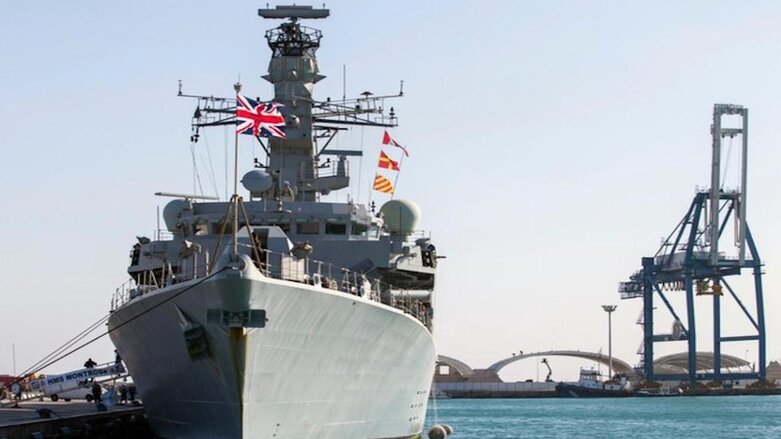More reports of tensions between Iran and the west emerge after collapse of JCPOA talks

WASHINGTON DC (Kurdistan 24) – UK authorities revealed on Thursday that on two occasions earlier this year—Jan. 28 and Feb. 25—British Royal Navy ships had seized shipments of sophisticated missiles that Iran was transferring to Houthi rebels in Yemen.
The British announcement followed critical statements on Tuesday from US officials, marking the most negative US assessment yet of the prospects for a renewal of the 2015 Iranian nuclear accord, formally known as the Joint Comprehensive Plan of Action (JCPOA), which former President Donald Trump left in 2018.
Read More: US: Iran blocking renewal of JCPOA by introducing new demands
Those statements were followed on Wednesday by the imposition of new US sanctions on Iran.
Read More: US imposes new sanctions on Iran after failed JCPOA talks
And the following day, Thursday was marked by Britain’s disclosure of its seizure of the Iranian missiles.
The Washington Post underscored the significance of that announcement, stating that it “signals an escalation as Western officials have in the past shied away from public statements that definitely blame Iran for arming Yemen’s Houthis with military contraband.”
A second issue also came to light: last fall, Iranian authorities detained a Polish scientist on espionage charges, which, almost certainly, are without basis. Nonetheless, the scientist remains in Iranian custody.
Although Poland is a member of the European Union (EU), the Iranian action did not, evidently, diminish what was a relentless EU drive to conclude an agreement on renewing the JCPOA.
UK Seizure of Iranian Missiles
As Britain’s Royal Navy explained in a statement issued on Thursday, the weapons it seized “included surface-to-air-missiles and engines for land attack cruise missiles”—in particular, the Iranian-produced 351 cruise missile, as well as “a batch of 358 surface to air missiles.”
The 351 cruise missile has a range of 1,000 kilometers and “is regularly used by the Houthis to strike targets” in Saudi Arabia, the Royal Navy statement explained. The missile was also used in an attack on Abu Dhabi on Jan. 17, 2022, in which three civilians were killed.
The two weapons seizures—in January and February—marked the first time a British warship had intercepted a vessel “carrying such sophisticated weapons from Iran,” the Navy’s statement said.
The belated disclosure of this information suggests the extent to which the parties to the JCPOA negotiations—including the US, UK, Germany, France, and the EU—turned a blind eye to Iran’s regional aggression.
Almost certainly, such considerations also played a role in the muted US response to repeated attacks on the Kurdistan Region by Iran and its militia proxies in Iraq.
The tougher US and UK positions on Iran come as US President Joe Biden prepares for his first trip to the Middle East from July 13 to 16, which will include Israel and Saudi Arabia. Iranian aggression is a major concern of both countries. Clarifying the US position toward Iran in advance of that trip will, almost certainly, facilitate Biden’s discussions.
Seizure of Polish Professor
On Wednesday, Iran’s state-run media claimed that the Islamic Revolutionary Guard Corps (IRGC) had detained several foreigners for “carrying out espionage in forbidden zones.” It said that they had been taking soil samples from restricted desert areas in southeast Iran.
It claimed that those detained included the UK’s deputy ambassador, as well as the husband of Austria’s cultural attache. However, the UK and Austria denied that any of their citizens had been arrested in Iran.
Yet one individual really had been detained, as the Polish government confirmed: Maciej Walczak, head of the environmental microbiology and biotechnology department at Nicolaus Copernicus University in the medieval town of Torun, where the famous 16th-century Polish scientist was born (Copernicus promulgated the then-heretical theory that the earth revolved around the sun, rather than vice-versa). Two other Polish citizens were arrested along with Walczak but were released and returned to Poland.
Why Iran detained Walczak and why Iranian authorities have announced his detention now is unclear. Possibly, they intend to use him, as a hostage, for leverage with the US and Europe.
